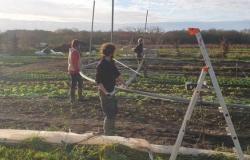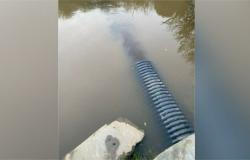It will arrive, but no one knows when. In the meantime, to prepare as best as possible, the prefecture organized a civil security exercise on African swine fever last Thursday, December 19 – the first took place in 2021.
Benoît de Lagarde, chief of staff of the prefect, echoed this alongside Carole Souvignet, director of the Departmental Directorate of Employment, Labor, Solidarity and Protection of the Population of Haute-Loire (DDETSPP). This exercise brought together around forty partners: State services, the Chamber of Agriculture, the Health Defense Group, the Hunting Federation, etc. The Orsec system set up as part of this epizootic aims to prevent at best the economic issues linked to this disease which only affects swine, that is to say pigs and wild boars.
A highly contagious and deadly disease
African swine fever is a highly contagious viral hemorrhagic disease. “The department is unscathed, but nevertheless several outbreaks exist in Europe, particularly in Germany and Italy, which are getting closer. We are 50 km from the French border from these two countries, observed Carole Souvignet. Its arrival is not inevitable, but vectors can accelerate its spread.”
The disease is fatal for pigs in 100% of cases. It is spread by contact and is not transmitted to humans. Even if the latter ingests contaminated meat, he would not get sick.
There are 60,000 swine on the farms of Haute-Loire, which means that “the arrival of this disease can have quite serious consequences on the economic level”, continued Carole Souvignet.
The first security measures concern the farms to make them “watertight”. After a surveillance phase, the declaration of infection leads to the slaughter of all animals on the farm. There remains wildlife, which can be a vector of contagion, in the same way as the transport of animals for example or other.
“We know that this disease will have a heavy impact on livestock farms. This is why we are working on security measures,” concluded Carole Souvignet.





